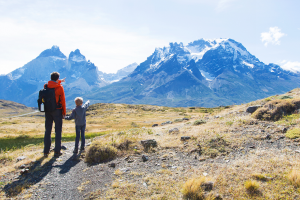 In the big scheme of things, human civilization is a blip on the map of history. We’ve been around on this planet for between 50,000 and 200,000 years depending on how you define modern humans. And as far as anyone can tell, advanced human civilizations have only been around for about 6,000 years. You may be asking yourself, why is that so important?
In the big scheme of things, human civilization is a blip on the map of history. We’ve been around on this planet for between 50,000 and 200,000 years depending on how you define modern humans. And as far as anyone can tell, advanced human civilizations have only been around for about 6,000 years. You may be asking yourself, why is that so important?
Because, it explains a lot about many of the predicaments that humans find themselves in today, like why so many people living in modern civilization are so unhappy and unhealthy. In fact, it seems like the more advanced our civilization becomes, the more unhappy and unhealthy we are, which is kind of confusing when you think about it. How could we be so messed up, when we’re living in an era that provides us with such an abundance of wealth and resources?
How are we so sick when medical care has never been so advanced? How are we so depressed when we’ve never had such a wide selection of entertainment? How come we feel so unfulfilled when we have more career choices than anyone else in human history? How are we all so stressed out, when compared to the lives of our ancestors, we’ve never had it so easy?
If I were to venture a guess, I’d say that many of these problems can be blamed on civilization itself in one form or another. This provider of so many material goods is what’s messing us up because we don’t know how to handle it. We’re walking around with caveman brains and caveman bodies, but we’re living in a world that is light years ahead of what any hunter-gatherer could have imagined. We’re out of our element, living in an alien world. Civilization, our greatest creation, has out-evolved us.
One of the ways we know that civilization is tripping us up is how it has separated us from nature. Our species was raised in the dirt and the trees and the sunshine. Now most of us spend our days huddled indoors, staring at electronic screens, and traveling through concrete jungles in temperature-controlled vehicles until we reach other indoor locations. It’s not the kind of environment that our minds and bodies have evolved to thrive in, and according to recent research, people who are living in that kind of environment aren’t living as long as people who reside in rural areas.
The research relied on data from a vast long-term Harvard study funded by the National Institutes of Health called the Nurses’ Health Study, which has collected health information biennially on more than 100,000 female registered nurses in the U.S. since 1976. The new paper analyzed participant data from between 2000 and 2008, taking note of any deaths that occurred and their causes. At the same time, the researchers used satellite data to assess the amount of green vegetation surrounding each participant’s home during the study period.
The researchers found that people living in the greenest places — that is, people who had the most vegetation within 800 feet of their homes — had a 12 percent lower rate of mortality from any non-accidental cause than people living in the least green places. Specifically, they found that the relationship was strongest for deaths related to respiratory disease, cancer and kidney disease. These results were the same regardless of the participants’ income, weight or smoking status and also did not significantly change between urban and suburban locations.
There were several reasons for this, most notably was the fact that greener areas produce less pollution, and can actually help clean up any hazardous materials that might present themselves. But more than that, people living near nature are more likely to go outside, interact with other people, and get more exercise, all of which increase our mental well-being. And since stress and depression can affect us physically, it’s no wonder that living near nature can keep you alive longer.
In fact, just being in nature is enough to lift your spirit. It’s a means to its own end. It doesn’t matter who you are or where you come from, even a lifelong urban dweller can be left in awe of nature. There’s something primal and ancient within us, that allows us all to feel better when we’re in the presence of the wilderness. It’s always been with us, and if we don’t make room for it in our lives, then civilized life will always put us in an early grave.
This article was originally published at Ready Nutrition™ on May 13th, 2016






